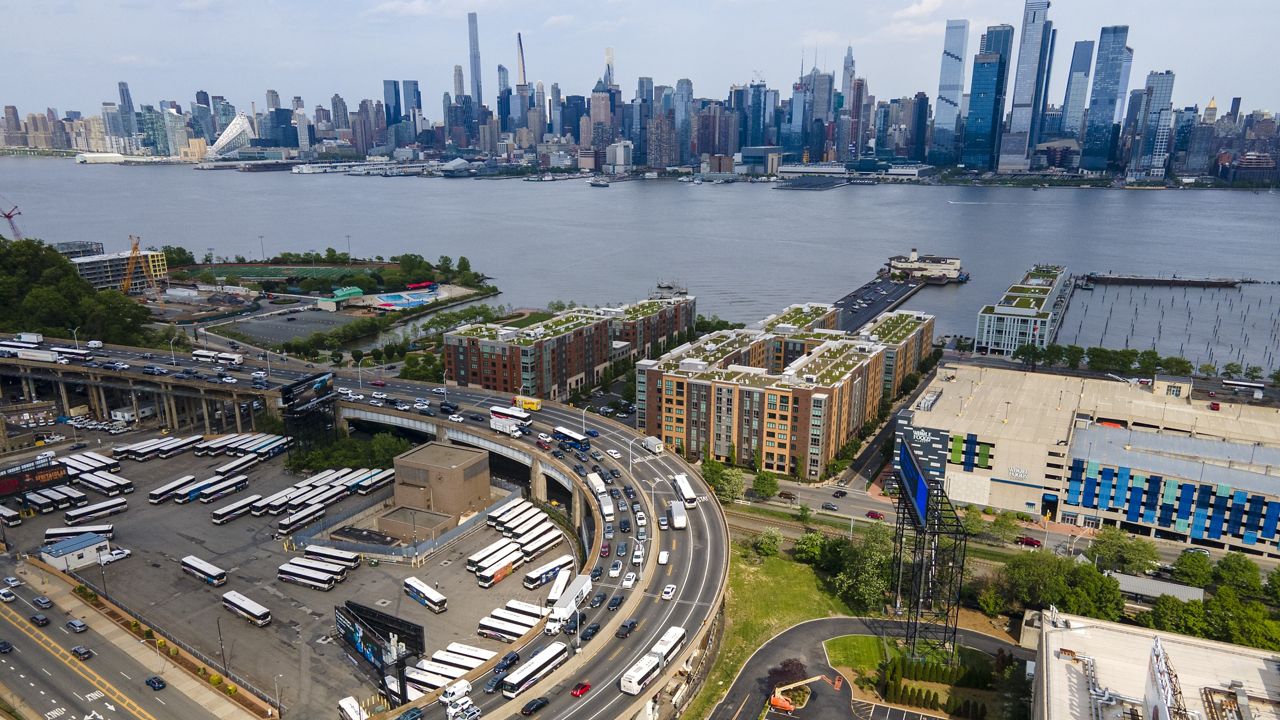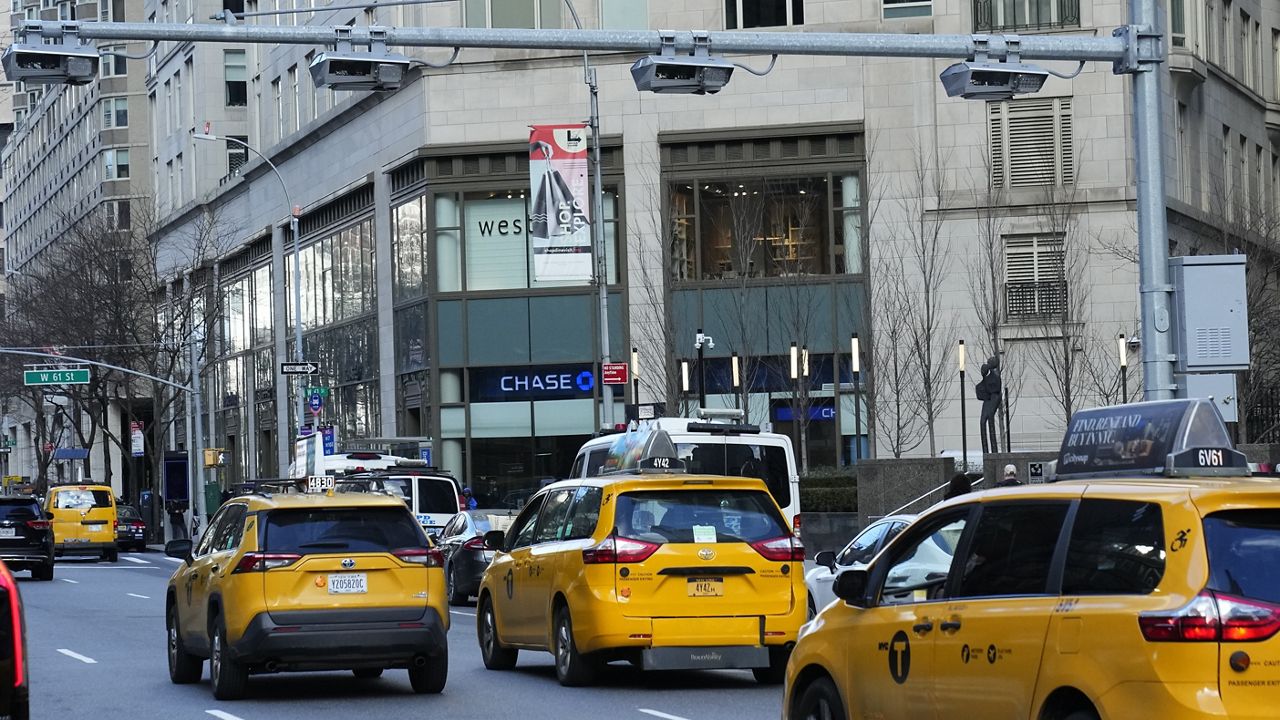Congestion pricing is set to take effect one minute after midnight on June 30, but there is a last-ditch effort to stop the first-in-the-nation tax on traffic taking place in a federal courthouse in Manhattan.
A judge on Friday heard oral arguments from three groups of plaintiffs whose lawsuits aiming to stop the MTA from rolling out its plan have been consolidated.
What You Need To Know
- A judge on Friday heard oral arguments from three groups of plaintiffs whose lawsuits aiming to stop the MTA from rolling out its congestion pricing plan have been consolidated
- The lawsuits argue the plan lacks a comprehensive environmental review and could hurt low-income New Yorkers
- The MTA and other agencies defending the plan argue that it will mean a greener New York, cleaner air and less traffic
The lawsuits argue the plan lacks a comprehensive environmental review and could hurt low-income New Yorkers.
Congestion pricing is a policy that charges drivers a fee for entering certain designated zones within a city, typically during stated or peak hours. The MTA's plan will impose a $15 base fare for cars with E-ZPass tags entering Manhattan south of 60th Street.
One case opposing the plan was brought by a group called New Yorkers Against Congestion Pricing, which represents city residents, as well as some moderate to conservative city politicians from both parties. Another was filed by two residents of Battery Park City in Lower Manhattan.
“Right now, there hasn’t been any mitigation on the economics or the environmental impact,” Susan Lee, with New Yorkers Against Congestion Pricing, said.
In its environmental assessment, the MTA argues it plans to spend $155 million for mitigation over five years.
The New Yorkers Against Congestion pricing suit also argues that state procedural law requires the MTA to study the economic impacts, and claims the process should have been done with the adopted tolling plan, which is now under reevaluation by the feds.
The MTA’s lawyers say the tolling structure is within the range of the seven scenarios already studied, and the reevaluation won’t show any deviation.
A third case was brought by United Federation of Teachers president Michael Mulgrew and Republican Staten Island Borough President Vito Fossella.
They argue that the MTA’s plan required a greater level of study by the federal government than it received when federal agencies approved it. They also cite a study the MTA carried out that showed traffic and pollution would worsen around Manhattan, including in the South Bronx, Staten Island and parts of New Jersey.
One of the plaintiffs in the case, Battery Park City resident Elizabeth Chan, told NY1 she believes the plan must be stopped.
“The bulk of our argument is that the MTA decided to push through this MTA congestion plan without the full process of the National Environmental Policy Act, which means that they did not go through all of the required steps that a program of this nature should have gone through,” Chan said. “The effects [on] people that live and are residents in Lower Manhattan are going to be profound.”
Defending congestion pricing in these lawsuits are the MTA, the New York State Department of Transportation and the federal agencies that ultimately gave New York the green light to pursue the plan.
Their argument is that the plan will mean a greener New York, cleaner air and less traffic.
MTA Chair and CEO Janno Lieber spoke to reporters about the cases, arguing that congestion pricing has already undergone a rigorous study spanning 4,000 pages — and should go into effect.
“The issue is, was a 4,000-page, four-year study sufficient? We think it is. The federal government gave us an A+. That’s why we’re confident going into this,” Lieber said.
The MTA has “all the infrastructure ready to go,” he added.
The lawsuits being argued are not the only legal challenges congestion pricing is facing. A federal lawsuit brought by officials in New Jersey against the federal government also makes the case that more study was needed about the plan’s effects.
Meanwhile, the MTA has motioned to get the Mulgrew and New Yorkers Against Congestion Pricing cases dismissed, claiming they were filed passed the statute of limitations.
The court has not yet issued decisions in any of the cases.
Do you have a congestion pricing question? Submit it to congestionpricing@charter.com. We have started answering some of your questions here.






_PKG_CP_Bus_Speeds_CLEAN)
